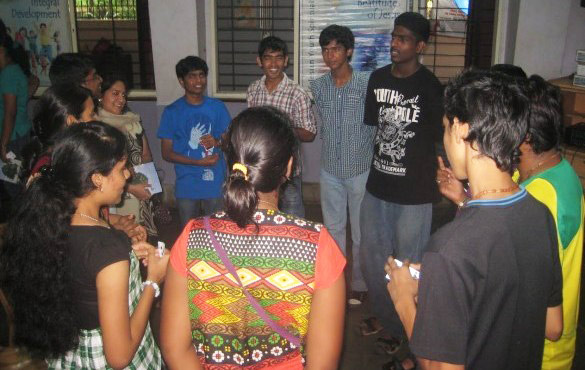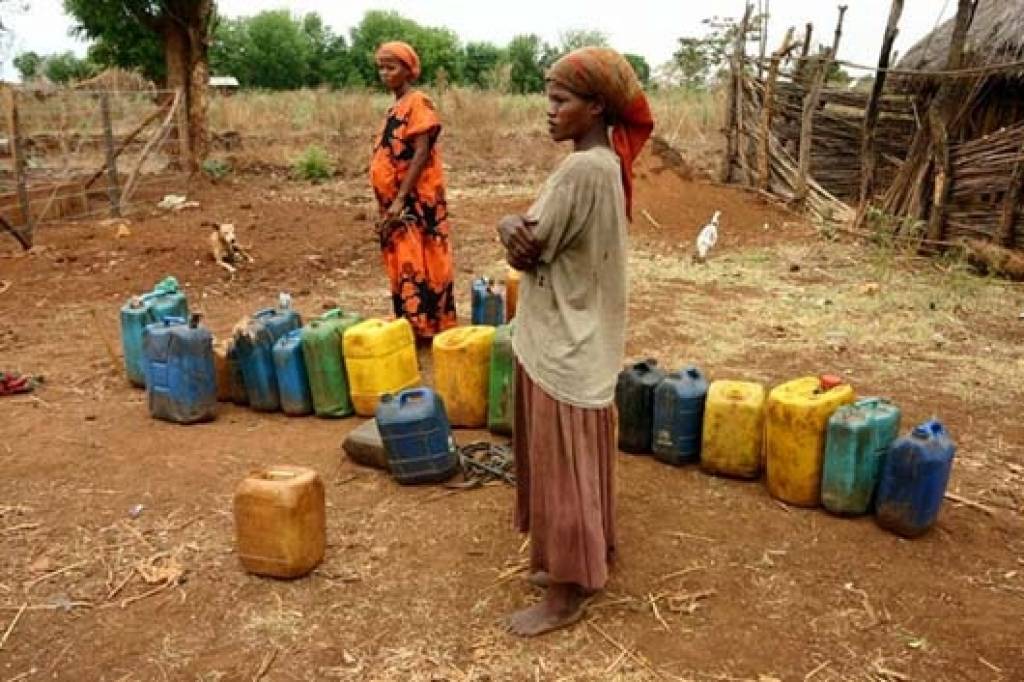WORLD WATER DAY: Salesian Missions Highlights Programs that Provide Safe Water, Agriculture Training
(MissionNewswire) The international community celebrated World Water Day on March 22, which is recognized annually as a means of focusing attention on the importance of freshwater and advocating for the sustainable management of freshwater resources. World Water Day 2012 was coordinated by the Food and Agriculture Organization of the United Nations.
Each year, World Water Day highlights a specific aspect of freshwater. The theme of this year’s World Water Day was water and food security.
“Agriculture is by far the main user of freshwater,” said United Nations Secretary-General Ban Ki-moon in an address highlighting World Water Day on March 22, 2012. “Unless we increase our capacity to use water wisely in agriculture, we will fail to end hunger and we will open the door to a range of other ills, including drought, famine and political instability.”
World Water Day is also a day for celebrating organizations and people who work year round to empower women and girls in an effort to make the world a better place. It is work that too often goes uncelebrated.
Salesian Missions has programs helping the poor in more than 130 countries around the globe, including programs that provide safe water and much-needed agricultural training in some of the poorest places on the planet. Here are some examples of that work:
To address serious water issues resulting from pesticide pollution in a remote area of western Brazil, Salesian Missions worked with members of the Xavante and Bororo Indian communities to obtain clean water from previously inaccessible areas. To do so, they first created wells and designed a mobile drilling truck. To create power, they invented and patented a seesaw pump that would draw water from the depths of the well. Now, solar panels are used. The result is reduced risk of disease, access to potable water, improved infrastructure and expanded farming. The immediate response to a crisis in a community has become a well organized project to ensure the growth of the indigenous groups.
Safe drinking water is essential for child survival. In India, progress has been made toward access to safe drinking water with 84.5 percent of rural and 95 percent of urban populations having sustainable access to safe drinking water, according to the World Bank.
At the Don Bosco Centre for Learning in Kura, a new training facility focuses on job training in developing technologies concerning water – ranging from plumbing and sanitation to developing efficient methods for utilization and analyzing existing systems for efficient transportation of water. The courses are designed for youth who have previously left school in order to help them enter the job market.
In Rwanda, food insecurity is a major issue, according to the World Food Program. At least 22 percent of households (2.2 million people) are food-insecure, and another 24 percent are highly vulnerable to food insecurity.
Today, Salesian Missions includes agriculture in its vocational training programs – to ensure that youth of Rwanda learn better agricultural practices as well as keep the school self-sustaining in the face of the country’s food shortages.
Rebuilding efforts continue after an 8.0 magnitude earthquake in August 2007, which killed more than 500 people in the central coastal cities of Chincha, Pisco and Ica, and injured hundreds more. Years after the quake, Salesians are still helping with ongoing reconstruction efforts in Peru, such as the development of “Mary Help of Christians Village” in Chinca – comprised of 22 small homes with running potable water.
In Bolivia, families now have access to safe drinking water in their homes through community water distribution projects. For example, in the town of “19 de Agosto” in Santa Cruz de la Sierra, the new distribution brings water directly to 106 families who previously had to carry potable water from the town well to their own homes. In addition, the distribution system greatly improves the sanitary conditions of the drinking water. And, in the town of “Las Parabas,” 50 families now have water distribution directly into their homes.
In Bolivia, training in agriculture practices inspires transformation of communities. At the Muriyana Agricultural School, more than 600 high school students and 100 advanced students are receiving training while learning to integrate their work into the local community. An estimated 20,000 people in the communities benefit directly from this program as a result of the school’s extension and community outreach programs.
Liberia is one of the poorest countries in the world, according to the World Bank. After a devastating civil war, orphans, street children and adolescent ex-combatants are facing – with little education or skills – adult responsibilities.
The goal of the Don Bosco Rehabilitation and Skills Training Program in Liberia is to reach youth through rehabilitative skills training and counseling. By attending classes, youth can make up for the years lost as a result of the war by gaining marketable skills that they can then contribute to the rebuilding of the country. Teenagers to young adults in their mid-twenties are able to receive agricultural training in addition to carpentry, masonry, plumbing, auto mechanics, metal works, and electricity. The program was founded in 1991 through a joint initiative with UNICEF.
###



